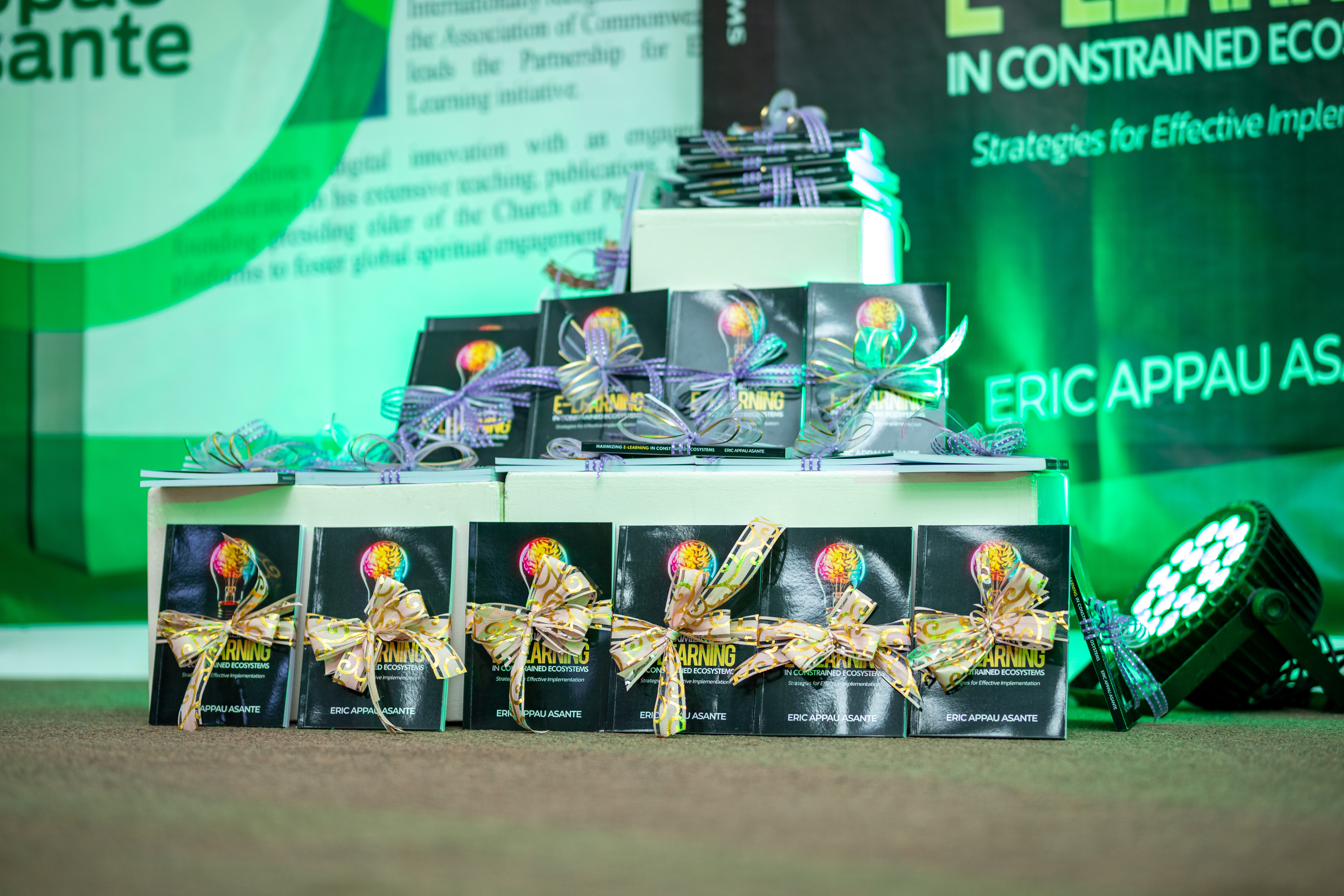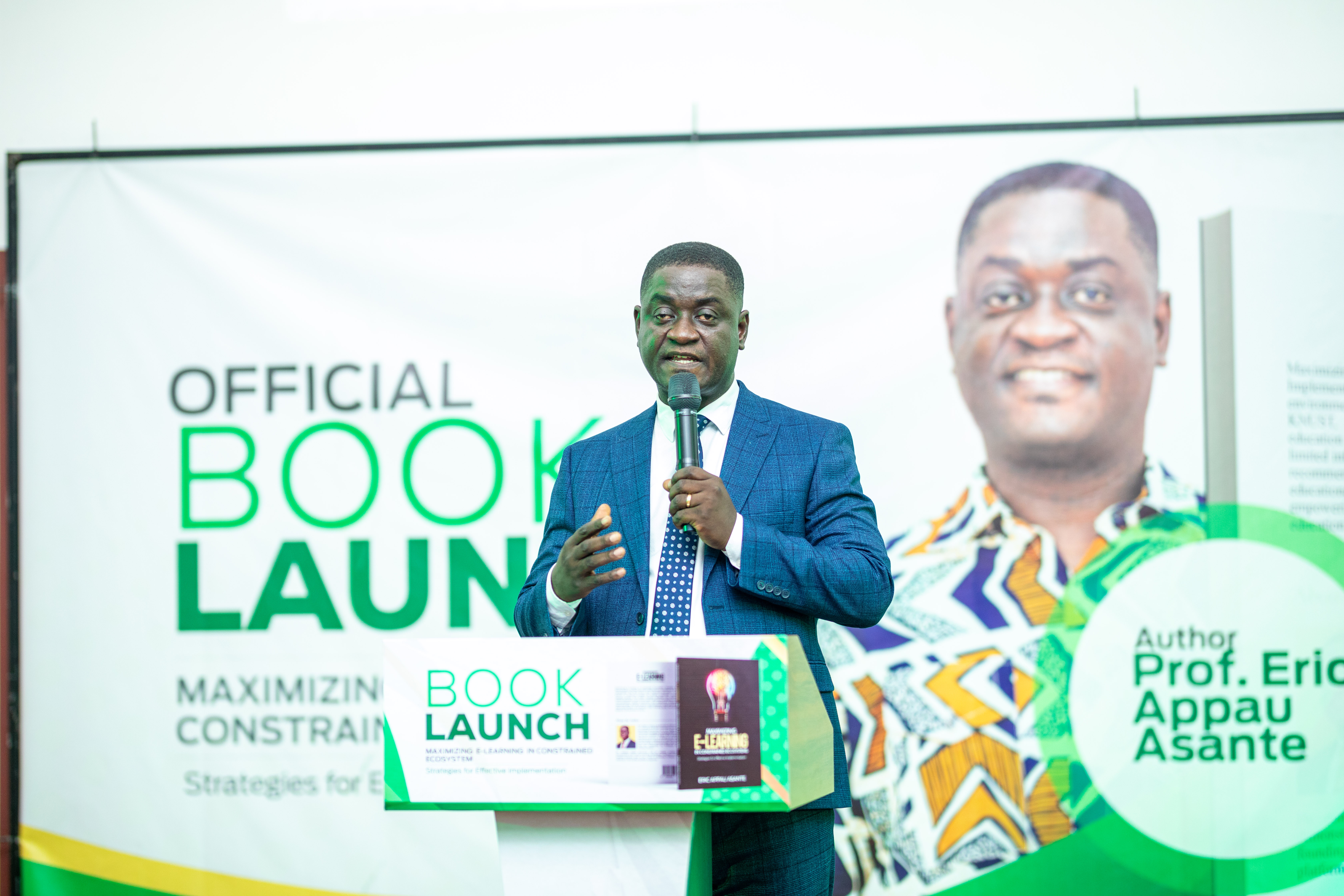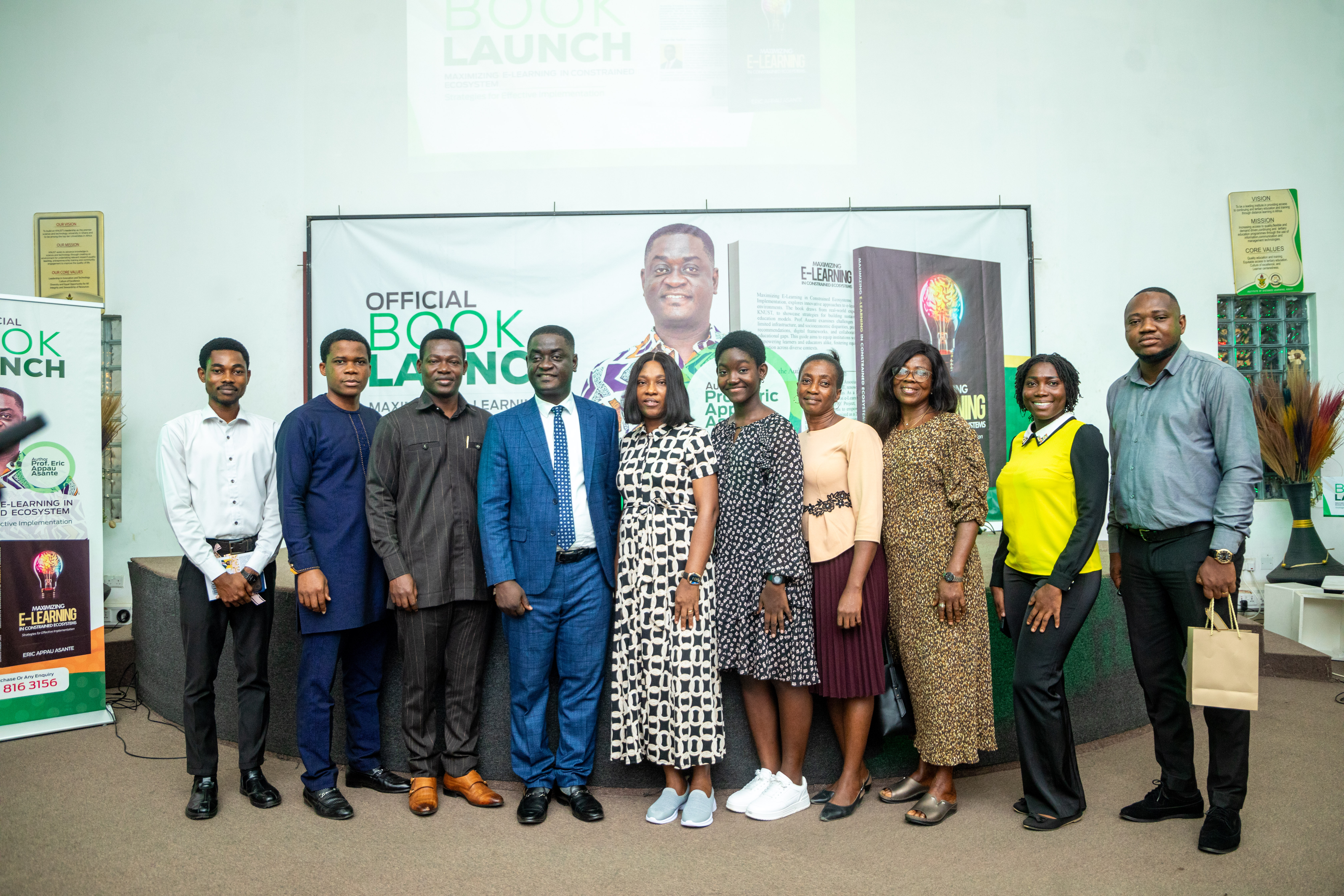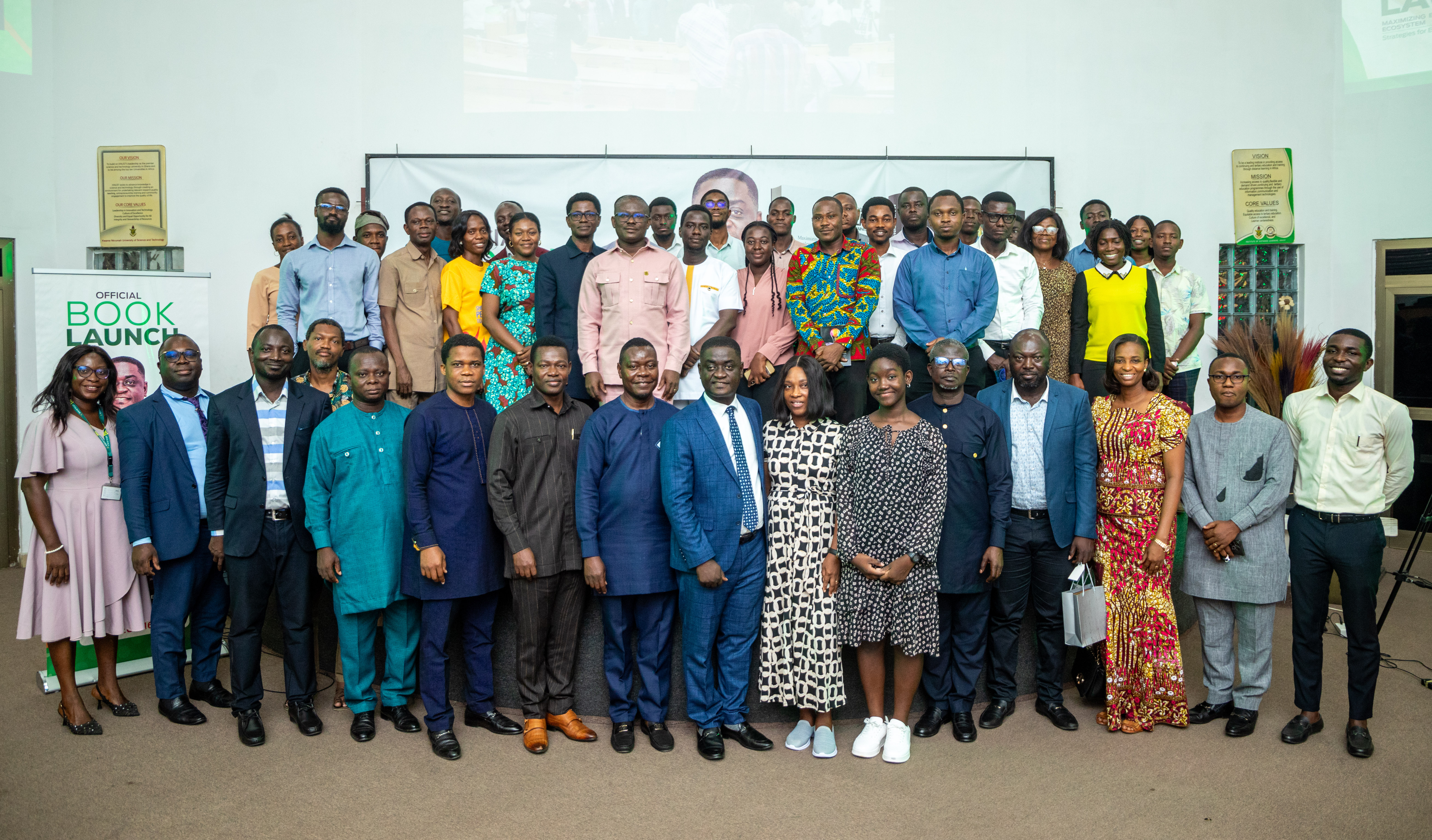Maximizing E-Learning education in challenging environments: The launch of Professor Eric Asante's new book
The launch of Professor Eric Asante's book, Maximizing E-Learning Education in Constraint Ecosystems: Strategies for Effective Implementation, was held at the Kwame Nkrumah University of Science and Technology with distinguished guests, educators, and policymakers in attendance. The event, aimed at discussing practical strategies for education in resource-constrained environments, was chaired by Professor David Asamoah, the Pro Vice-Chancellor of KNUST. In his opening remarks, Professor Asamoah spoke about the relevance of the book in addressing the educational challenges faced by institutions, especially in regions with limited resources.

He emphasized the importance of transforming education systems and highlighted how technology could help overcome some of the barriers faced by learners and educators in such environments. “This book addresses issues in education, particularly in resource-constrained areas. It provides practical strategies for leveraging technology to improve the quality of education, even when resources are limited. The work of Professor Asante is timely, given the changing landscape of global education, and it offers a roadmap for success.” Adeniyi Emmanuel, the Programme Specialist at the University of Cambridge and former Regional Engagement Lead for the Association of Commonwealth Universities (ACU), delivered the foreword for the book. He commended Professor Asante’s work, acknowledging the impact it would have on institutions around the world, particularly in Commonwealth countries.

“At the ACU, we are committed to promoting access to quality education regardless of location or economic status. Professor Asante’s book is a tool in achieving this vision. It offers strategies for overcoming barriers such as digital poverty and infrastructure limitations, ensuring that no one is left behind in the quest for education.”
Emmanuel also praised the book for offering solutions that are not just theoretical but also practical, providing a blueprint for institutions to adapt and innovate in the face of challenges. He mentioned the importance of creating resilient educational ecosystems, which would benefit both educators and learners.
“This book is a resource for institutions looking to develop sustainable models of e-learning and technology integration. It offers understanding on how to create solutions that are both effective and adaptable, ensuring that quality education can be delivered even in the most challenging environments.

” Professor Asante, the author of the book, shared his thoughts on the inspiration behind his work. He explained that the challenges faced by educational institutions, especially those in developing regions, motivated him to write the book. He highlighted the increasing demand for practical solutions to address the digital divide and the need for innovative strategies in education.
“My journey in education and technology has always been driven by a passion to transform lives, particularly in environments where resources are limited. This book is my response to the growing demand for strategies that can help educators and institutions thrive, even in the face of constraints. It is about finding solutions that prioritize inclusivity, equity, and sustainability.”
Professor Asante also reflected on the impact of the COVID-19 pandemic, which forced many educational institutions to shift to online learning. He pointed out that this shift highlighted the need for practical solutions that could address the challenges of digital learning and ensure that education remained accessible to all, regardless of geographical location or economic background.
“The pandemic showed us that education could not be limited to traditional methods. It forced us to embrace technology, but it also exposed the gaps in digital infrastructure and resources.
This book offers strategies to bridge those gaps and create educational opportunities for all.” The book, Maximizing Education in Constraint Ecosystems, is divided into several chapters, each focusing on different aspects of educational challenges and solutions. One chapter addresses the issue of digital poverty, offering strategies for ensuring that all students have access to the necessary technology for online learning.
Another chapter focuses on the human element in education, emphasizing the importance of collaboration between educators, learners, and policymakers to create effective educational ecosystems. Professor Asante’s book also highlights the need for collaboration between institutions, governments, and the private sector to create resilient educational systems.

He mentioned that overcoming the challenges faced by educational institutions would require a collective effort, with all stakeholders working together to find sustainable solutions.
“This book is for anyone involved in the education sector, from policymakers to administrators to private sector leaders. We all have a role to play in ensuring that education is accessible to everyone, regardless of the challenges we face.”
The event also featured remarks from other stakeholders, who expressed their support for Professor Asante’s work and commended him for his dedication to improving education in resource-constrained environments. As Professor Asante put it, “The challenges we face in education today are not insurmountable.
With the right strategies and collaboration, we can transform education and ensure that no learner is left behind.” The book shows his commitment to advancing education, and its impact will be felt by educators and learners around the world for years to come.
Published: 21st December,2021 Source: KNUST E-Learning Centre
